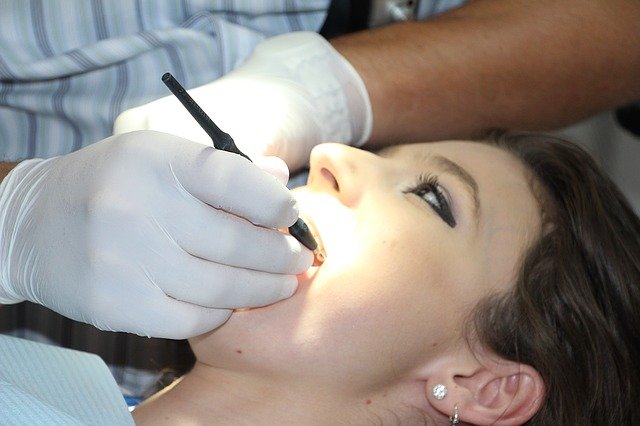If your tooth has been infected or damaged or decayed, more likely than not, you’ll need to see an endodontist for a root canal. In cases where root canals failed or simply weren’t enough to save your natural tooth, in the past, your only option likely would have been to have it pulled. Now, if a root canal isn’t enough, you can have an apicoectomy done.
If you’re wondering about the differences between a root canal vs apicoectomy, here’s a guide to help you understand when you would need a root canal vs apicoectomy, what differentiates the procedures, and the signs that will help you identify when you may opt for a root canal vs apicoectomy.

Root Canal Vs Apicoectomy: The Differences
Both root canals and apicoectomies are dental procedures done to decayed teeth that strive to save your natural tooth. Endodontists will always do everything in their power to preserve your natural teeth, hence how now, if a root canal isn’t enough, you could have an apicoectomy done, rather than needing to jump right to extraction and having implants put in. Here’s what you need to know about the difference between what a root canal is and what an apicoectomy is.
What A Root Canal Is
A root canal is done when the pulp of your tooth has been compromised due to decay, a fracture, a crack, infection, or other such damages, but there is enough of your tooth structure that is healthy and can be saved. If the rest of your tooth aside from the pulp is in good condition, the pulp can be removed and filled in with a dental filling. If necessary, a crown will be placed over your tooth in order to protect it and strengthen it.
What An Apicoectomy Is
An apicoectomy is done when a root canal fails and another root canal isn’t an option. In some cases, if your root canal fails and the pulp of your teeth are infected again, another one can be done, but this would involve the removal of the crown, which can damage your gum line and the root of your tooth. If retreatment was not successful or not possible, your endodontist may recommend that you get an apicoectomy.
An apicoectomy is a minor surgical procedure that removes infection from the root of your tooth and then is sealed and your gums are sutured in order to prevent it from becoming infected again and to promote healing.

Root Canal Vs Apicoectomy: The Warning Signs
Knowing whether you need a root canal vs apicoectomy can be very difficult on your own, which is why it’s vital to maintain your regular dental appointments. While you can sometimes tell that there are signs you need a root canal, in many cases, you may not even notice, but your dentist would be able to tell. With apicoectomies too, it’s important to see an endodontist. There are several options for if your root canal fails, and your endodontist will be able to determine whether or not an apicoectomy is the right one for you.
Signs You Need A Root Canal
It’s commonly said that you can tell you need a root canal if your tooth hurts. Pain is certainly an indicator of a potential root canal, but it’s not the only one. Some of the signs that you need a root canal include:
- Swollen gums
- Sensitivity to temperature
- Discolored teeth
- Chipped/cracked teeth
- Pain when putting pressure on your tooth
- Throbbing pain when you lie down
- Abscess/infection

Signs You Need An Apicoectomy
Since apicoectomies are needed after root canals fail, you’ll notice some of the similar signs, in addition to:
- Calcium deposits
- Re-infection
- Damage to the root structure/surrounding bone
- Tooth pain that persists after a root canal
- Inflammation and infection that persist after a root canal
- Discoloration
Root Canal Vs Apicoectomy: The Procedures
Root canals and apicoectomies are two separate procedures with the same end goal: save your tooth. When people say root canal vs apicoectomy, you may take that to mean that the two procedures are competing for which one is better. This isn’t true. They’re both meant to preserve your natural teeth, and apicoectomies are only needed if a root canal isn’t enough.
The root canal and apicoectomy procedures are similar, but not the same. Here’s what you can expect with a root canal vs apicoectomy procedure.
The Process Of Getting A Root Canal
When you get a root canal, your dentist will drill a hole into your tooth in order to remove the infected pulp. They’ll then disinfect it and fill it, as well as fill in the access hole. If necessary, your dentist will place a crown over your tooth to keep it strong and protected.

The Process Of Getting An Apicoectomy
Root canals take place over the gum that we chew with, but an apicoectomy takes place at the apex of the root, the tip of it. From there, infected pulp is removed and then the end of your root is sealed. Since this procedure takes place under the gumline, a small incision is made so the endodontist can access it that is then sutured.
If you need more information about root canals versus apicoectomies or are wondering if you may need one or the other, contact David G. Johnson, DDS today. We offer both root canals and apicoectomies and will do whatever we can to help you save your tooth.



